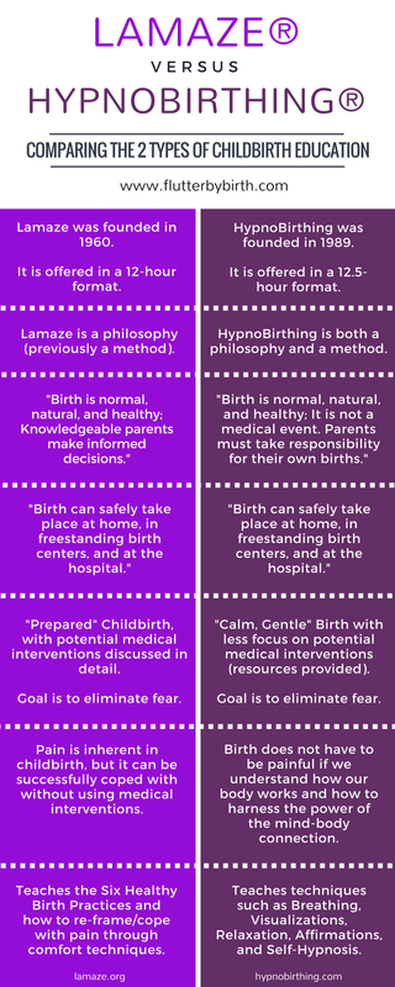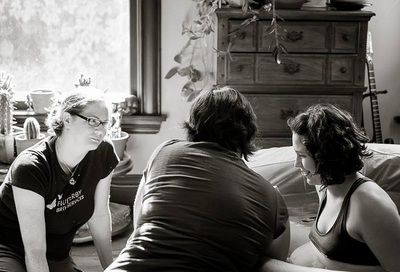|
By Erin Stertz-Follett, CD(DONA), LCCE, HBCE, with contribution from Aly Folin, CPM, LM, North Star Midwifery
“Postpartum [pohst-pahr-tuh m]: Adjective – Of or noting the period following childbirth; after delivery (origin: Neo-Latin, 1840-50).” Ah, yes. Postpartum. “The postpartum period.” “The time following birth.” In the United States, there is little thought given to the concept of the postpartum period. Few families are afforded adequate leave from their jobs to tend to the needs of the mother and the baby. While the time of birth is celebrated, the time afterwards is not given much more than a moment’s thought. I (Erin) tell my doula families that “preparing for birth, but not for postpartum, is like preparing for the wedding but not the marriage.” Sometimes that is met with a bit of a dull thud. Understandable. It’s not something we like to think about, necessarily… How things might be difficult in those first weeks and months; how we might need to ask for support when it’s outside of our comfort zone; how sleep deprivation will settle in; how baby might not latch on and nurse as well as we’d hoped; how our family lives way father away than we’d like. But it is important. So, SO important. Here are seven ways you can help to ensure that your postpartum period will be as wonderful as your birth! 1) Plan, plan, plan. You planned your wedding. You planned your last vacation. You planned your birth. Don’t forget to plan for the postpartum period! Think about the following questions… Who will take care of meals, the dishes, the laundry, the other kids, and all of the other tasks associated with running your home while you rest and heal after baby is born? Who will bring you water and food while you snuggle skin-to-skin and nurse your newborn? What will you watch on Netflix so that you don’t go crazy lying around for a couple of weeks? Take advantage of the time your during pregnancy to determine what your plan will be so that you have the space and time you need to take that rest. You earned it! You did just take nine months to fully grow and give birth to another human being, after all! It is unreasonable to expect that you would be back to normal after just a few days. If you plan and take this time in the beginning, you will feel better so much faster and be back to your new normal fairly quickly. Mamas who don’t plan or have proper support are more prone to breast infections and nursing issues, longer postpartum bleeding, and generally being more run down. DONA has a wonderful Postpartum Planning Worksheet if you need help getting started! 2) Stay home (or close to it) for 2-3 weeks… and Rest. Rest and nest. We know this sounds hard; especially for women who are used to being “on the go.” However, in those early days after your baby, it is essential that you rest and recoup. Physiologically speaking, you essentially have a placenta-sized scab on the inside of your uterus right after birth. When you get up and move around too much, you continually re-open that scab and do not have the time to heal. Also, think of your pelvic floor as a “sling” that has been opened and stretched to make room for a baby to emerge; it also needs time to come back to normal. Take the time to let your body recover! You will never have this sweet time with your baby again. Snuggle in bed, nurse, and watch TV or read a book. This concept becomes even more important when you are adding to your family. Once your older kids see you out of bed and out and about, they will expect you to be a full-time mommy again. Once you leave your nest, you can’t go back. It drives me (Aly) bonkers when I see moms with newborns out at Costco or the mall in those first few weeks after the birth. I feel bad for those moms being dragged out of their beds and into the world. Their bodies haven’t had time to recover. And the babies – they will have plenty of time to develop their immune systems, but those first few weeks isn’t the time to start exposing them to anything aside from the antibodies directly from your skin. For more on how to recover after birth, check out this wonderful summary: “A Guide to the Tender Loving Care of Yourself.” 3) Set boundaries. This is tough. Really tough. There will naturally be many important people in your life that want to meet the baby once he/she arrives. Try setting up a visiting schedule each day (or every-other day) when people can come visit. Be “selfish.” Find a time that works for your own family and have an “open house” of sorts for several friends and family members to come at once (but not too many at once). Of course you want to show off your new baby, but if you can’t be topless in front of your visitors, then they really shouldn’t be over. Newborns will be newborns for several weeks; everyone will get a chance. Remember that baby belongs with you… not passed around from person to person. When people do come to visit, put them to work – have them start a load of laundry, fold the clean clothes, or wash some dishes. Oh, and they definitely should not come unless they bring a meal! Our culture has things a wee bit backwards when it comes to taking care of new mamas. Hint: holding the baby while the mama “gets things done” isn’t the way to go! Ask your provider or doula for a note you can put on your front door that basically says, “If you aren’t here to help, you shouldn’t be here.” Or, a note that asks well-meaning family and friends to leave meals for you on the steps/porch. You just might be surprised how understanding folks can be when they know you have just given birth. Give yourself space and grace. They will too! 4) Practice good self-care. First and foremost: Sleep when your baby sleeps. Cliché? Maybe. But every mom who has been there before you will say this… and for good reason! You never know the next time your baby will have a nice long stretch of sleep, so don’t worry about cleaning the house or writing thank you notes; those can wait! If your baby isn’t one that sleeps longer than an hour or two at a stretch, then strategize with your partner on how you can get a few uninterrupted hours in a row (pro tip: you might need ear plugs). Approach parenting like the team you are, and take shifts. When you are ready to leave the house more, book that massage (or have your partner book it for you)! Better yet, find a massage therapist who will come to you. See your chiropractor. Take a nice, long soak in an herbal bath. As experienced moms, we can’t stress this enough: Take breaks!… Short ones if you have to, and longer ones if you can get them. 5) Hire a postpartum doula. Yes! There is such a thing as postpartum doulas… And they’re awesome! They can provide support and encouragement in those first few weeks postpartum. They do light house cleaning, make meals, run errands, hold the baby so you can nap, help you navigate breastfeeding… whatever you need! If you don’t have familial support, a postpartum doula is essential! Your provider or doula should be able to provide you a list of local postpartum doulas. 6) Give yourself grace. Lower your own expectations. Give yourself some slack. Sometimes this may be the most difficult step of them all. Women, by nature, are harder on ourselves that we should be. The “Mommy Wars,” trying to please everyone, and wanting to live up to our own mothers’ (or friends’) examples or expectations… It’s a lot for any mom, but especially a new one! It doesn’t matter what the house looks like. It doesn’t matter that you are getting take-out food 4-5 times per week. What really matters is that sweet new person you get to snuggle… and taking care of yourself. There will be plenty of time to worry about the other stuff, but those first days and weeks with your new babe are irreplaceable. 7) Know when additional help is needed… and where to find it. Sometimes the postpartum time comes with postpartum depression. This is more than the typical adjustment time and associated “Baby Blues,” which generally dissipate within two weeks after birth. 10-15% of new moms are diagnosed with true postpartum depression, and it may begin anytime in the first year of baby’s life. Partners are often the ones who notice depression first – their partners are just not the same, and it is more than just the sleep deprivation or expected struggles that come with being a new parent. Thankfully, there are lots of resources. Here are a few for our local folks, and know that you can always contact your provider too: Pregnancy and Postpartum Support Minnesota HCMC’s Mother Baby Program Postpartum Counseling Center Consider joining a new mom’s group or a MOMS Club in your area! Sometimes getting out and being around other new moms who are traveling the same road that you are can be extremely comforting. You just may make a few new lifelong friends! If you need additional help with breastfeeding, talk to your provider or doula. Don’t wait until things are so bad that you feel like giving up. It is normal to need help! Seek out the guidance of an IBCLC(International Board Certified Lactation Consultant) who can help assess and set you on the right path. For you locals, Flutterby offers lactation services; and there are many other awesome lactation pros in the Twin Cities. Bottom line? You only have this baby, and this postpartum period, once. Be good to yourself. Turn over some control to others (good practice for parenting in general). Allow your body time to heal. Snuggle your baby; they are only this little for a short time. Ask for help. Remember that this too shall pass. Happy Birthing! With Flutterby offering both programs, you may need a little help in sorting out which option is best for you! I designed this nifty little infographic to give you some idea of the similarities/differences between the two amazing programs. Of course, I am always available to answer your questions as well! For detailed class information, click HERE for HypnoBirthing and HERE for Lamaze.
Written by Aly Folin, CPM, LM, North Star Midwifery & Erin Stertz-Follett, CD(DONA), Flutterby Birth Services After attending many births, it is safe to say that we as midwives and doulas have heard just about everything you can imagine come out of the mouths of the beautiful, strong laboring women before us. These are instinctual, common things to say in the midst of this transformative moment in your life. Sure, we might occasionally think, “Wow, I’ve never heard that before!” But, generally speaking, here are the words and phrases that we as birth attendants most often hear, along with tips for what these may mean and what partners can do in response!
1) “I can’t do this anymore!”/”When is this going to be over?” What this might mean: There are really two distinct transitions in labor - The transition from “early” to “active” labor; and “Transition,” which is the when the cervix is finishing its opening. Labor can be described as a “staircase,” with each step up becoming more intense. It can take a laboring woman by surprise and may take some adjusting, mentally and physically. What you can do: Help her stay calm, focused, and breathing through the contractions. Often this feeling passes quickly as she adjusts to the new level of intensity. Remind her that she can do anything for one minute at a time, and that she will receive breaks in between each contraction. 2) “I CAN do it.” What this might mean: In short, it means that she believes in herself, has educated herself on birth, and has built a wonderful support team! We see women all the time that are surrounded with loving support and skilled, caregiving providers who are confident and working with their labors. What you can do: Keep giving your partner your attention and reminders that yes, she can do it, that she IS doing it. If she strays from this path, have her repeat with you, “I CAN do it.” Tell her you are amazed by her, that she is strong. Keep affirming her work in bringing this baby forth. 3) “Don’t touch me!” What this might mean: Labor is full of big, new sensations that can require all of a laboring woman’s focus. As labor moves along, she goes more inward. If touched at the wrong moment, it can distract her from her work. She may love that foot massage one moment and want all hands off the next. What you can do: Don’t take it personally! It is all she can manage right now, and this too will pass. Help her get through by staying close and helping her to remember to breathe and release tension with only your words. A little goes a long way. Don’t forget to remind her that she is doing great! 4) “I am hot… I am cold.” What this might mean: There are huge hormonal fluctuations in labor that often lead to women feeling overheated or very cold. Because of this, you may first spend all your time warming a mom up, and then during the next contraction, she throws off all the blankets and is roasting! What you can do: Don’t worry; it is normal! It does not mean that she is running a fever (but feel free to ask your provider if you are concerned). Just go with whatever she needs in the moment. Heated rice sock? Check! Icy-cold washcloths? No problem, babe! Need the heat turned up when it’s already 80 degrees outside? Ok! 5) “I don’t know what I want to do.” What this might mean: Sometimes as women are getting closer to that final transition, they get more agitated and indecisive. No position or comfort measure is helping any more, or they are just too inwardly focused to make up their minds (understandably so!). What you can do: Again, remind her to breathe and help her stay calm during the contractions. Ask your doula or midwife to suggest some position changes that help moms when they are in this place in labor. If she wants to do something, but is having a hard time making a choice, take the lead and ask her to try a new position or technique for at least three contractions. 6) “It feels like I have to poop.” What this might mean: Poop? Yes, poop. As midwives and doulas, we get very excited (quietly) when we hear this! It often means the mom is feeling the baby’s head descend and put pressure against the nerve between her vaginal canal and her butt, making her feel like she has to poop. This usually means things are getting closer and she may be pushing soon! What you can do: Say, “YAY!” What?! No, really. Please don’t say, “GROSS!” Since you now know that this sensation is good and it means baby is closer to arriving, celebrate with her! Midwives and nurses/birth assistants are very quick to clean up anything that does come out. Be sure mom doesn’t feel self-conscious and remind her that she is close to meeting her baby! 7) “Baby’s coming!” What this might mean: Typically is means that baby is about to be born! Occasionally, women use this saying in general during their labor to express their overall excitement and anticipation of baby’s arrival. What you can do: If you are unsure if she means this literally, ask her to clarify. If so, get your midwife or the nurse – baby is coming and you should get ready to help catch! 8) [Insert favorite curse word(s) here] What this might mean: In actuality, it is surprising how little women swear in labor. The way the media depicts it, you would think that women are cursing up a storm and telling their partners all kinds of terrible things. But in reality, it is usually a moment here or there where some choice words or phrases will come out. What you can do: Nod your head “yes.” Give her an “Mmmm hmmm.” Show her that you understand that she is feeling an intensity like she never has felt before. Maybe curse words are a part of her everyday language, and you won’t even notice! Doulas and midwives love when moms curse, as again, it typically means that things are moving along. 9) “This is fun!” (What?! Yes, really… Women say this). What this might mean: Ok, we’ll admit. This isn’t the most-heard phrase in labor. But it has been said; most often by moms who are “high” on the hormonal cocktail of birth. They have drunk the Kool-Aid. They are all in. I (Erin) hear women say this who are well supported and who value humor and laughter in their birthing time. Moms who use hypnosis for childbirth techniques are the most common purveyors of this phrase. What you can do: Enjoy it! Your partner is a Certified Rock Star! 10) Nothing at all. What this might mean: Women deep into active labor will become very internally focused. Sometimes what helps them get through their contractions is to moan or stay quiet. Every woman is different and will cope differently. What you can do: Don’t worry if she isn’t talking to you – it just means she is working really hard to stay focused. Stay present physically; she will reengage when she can. Any and all of the above are so, so normal for women to say in the heat of labor! The main thing you can do as a support person is to respond to her needs the best you can in the moment and stay present as she works hard. Don’t take anything she might say personally. Always tell her she is doing great and how amazing she is! If this feels overwhelming to do on your own, hire a doula! She will help you know what to say in the moment and help you support your partner through this wonderful journey. Happy Birthing! Aly and Erin Sharing is caring! Please share/like on Facebook and "Like" the Flutterby PAGE and North Star PAGE! |
AuthorErin Stertz-Follett, Owner Categories
All
Archives
January 2024
|
|
All photography on this site used with permission. Special thanks to Raven Ivory Photography + Films, Megan Crown and Danica Donnelly and Gather Birth.
Edina, Minnesota [email protected] ©Flutterby Birth Services, LLC 2012-2024 |
Contact Registration Hypnobirthing Doula
Minneapolis Doula | St. Paul Doula | Minneapolis Childbirth Education | Minneapolis Hypnobirthing | Edina Hypnobirthing | Apple Valley Hypnobirthing | Lakeville Hypnobirthing | Eagan Hypnobirthing | Shakopee Hypnobirthing | Burnsville Hypnobirthing | Rochester Hypnobirthing | Inver Grove Heights Hypnobirthing | Chanhassen Hypnobirthing | Richfield Hypnobirthing | Bloomington Hypnobirthing | St. Paul Hypnobirthing | Twin Cities Doula | Twin Cities Hypnobirthing | Richfield Childbirth Class | Edina Childbirth Class | Minneapolis Childbirth Class | Birth Class Twin Cities | Minneapolis Birth Ed | Minneapolis VBAC | Virtual Hypnobirthing |





 RSS Feed
RSS Feed